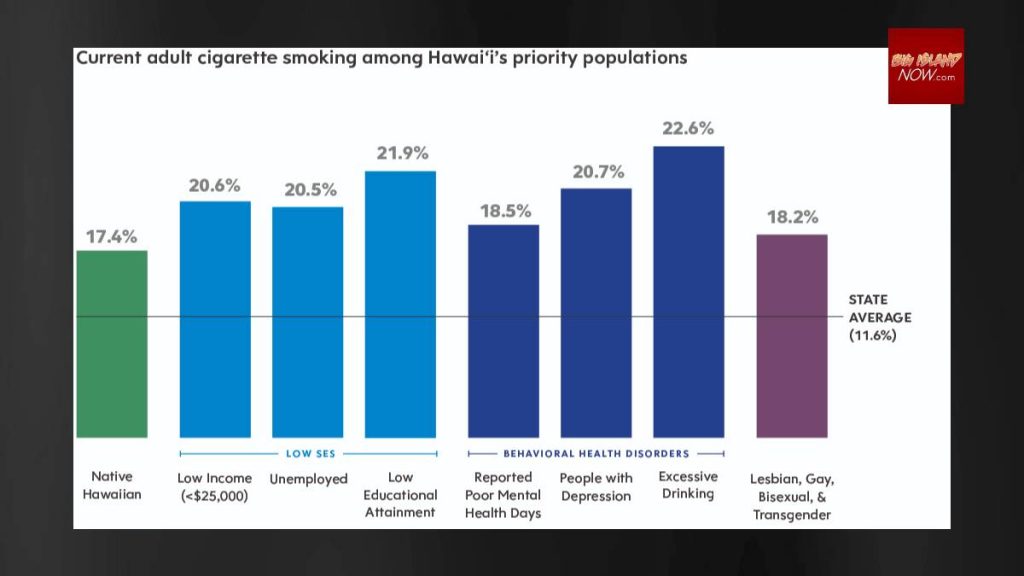Health Department shows how tobacco companies target diverse populations in Hawaiʻi

The Hawai‘i Department of Health and the Hawai‘i Public Health Institute recently launched the second phase of a public service announcement campaign to call attention to strategies used by tobacco companies that target Hawaiʻi’s diverse populations.
In Hawai‘i each year, the tobacco industry spends an estimated $26 million on marketing; more than triple the amount the state spends on tobacco prevention and control programs.
Marketing tactics have included pricing strategies in certain communities, glamorizing menthol flavors, event sponsorships and community outreach. The tobacco industry also targets youth by investing in and marketing nicotine-delivery products, such as e-cigarettes or vaping.
The tobacco industry is focused on specific populations, including racial and ethnic minorities, those identifying as LGBTQ, those with lower incomes, and those with mental health or substance abuse conditions.
The “Stronger Together” campaign identifies populations targeted by Big Tobacco which has led to higher proportions of tobacco use in these communities. The campaign is slated to run through April and includes TV, radio, digital, social media and print advertisements.
According to Lola Irvin, administrator of the Department of Health, Chronic Disease Prevention and Health Promotion Division, “Hawaiʻi has made great strides in reducing cigarette smoking overall, however the continual introduction of new products and tailored marketing strategies used by the tobacco industry have pressured certain groups to use more tobacco than others. This campaign highlights the importance of health equity in the fight to end the tobacco epidemic in our state.”
Joshua Ching, a recent graduate of Kamehameha Schools, was inspired to join the Youth Council of the Coalition for a Tobacco-Free Hawai‘i after he saw first-hand how the tobacco industry targeted his peers.
“The tobacco industry has a history of exploiting marginalized communities like Native Hawaiians, widening existing public health disparities that have wounded the lāhui generation after generation,” Ching said. “That’s why I’m committed to the fight against Big Tobacco and the fight for equal justice – because standing up for the right thing is what it means to be Hawaiian.”
The public is encouraged to visit the campaign website, StrongerTogether.hawaii.gov, for more information about the tobacco industry’s targeted marketing tactics and to connect with their local Tobacco-Free coalition to stay informed and get involved.
For those already addicted to tobacco products, the Hawai‘i Tobacco Quitline offers free coaching and resources to support the quit journey. Call 1-800-QUIT-NOW or enroll online at hawaiiquitline.org. My Life, My Quit is a free program with trained coaches to help youth quit smoking or vaping. Teens can sign up by texting “Start my Quit” to 36072 or calling 855-891-9989.
Sponsored Content
Comments








